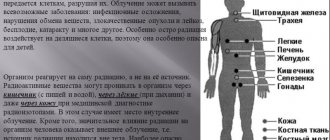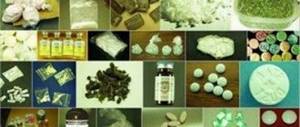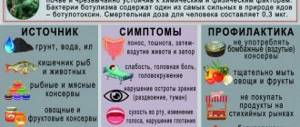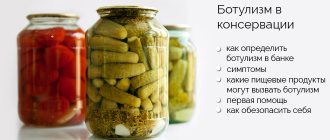Last updated August 1, 2020 at 05:23 pm
Reading time: 6 min
Botulism is a very terrible infectious disease caused by bacteria, namely its toxic waste "Clostridium botulinum - botulinum toxin." Nowadays people get sick very rarely, but such cases still occur.
This disease poses a huge threat to the lives of the entire population, since the main source of infection is food.
This disease does not appear immediately; the first signs are normal intoxication of the body (nausea and vomiting), but this means that the botulism infection is in the human body. First it is in the digestive tract, and then it enters the blood, and the field spreads throughout the body. The function of any organ is at risk.
Scientists and doctors have proven that the earlier and more severe the first symptoms are, the more difficult the botulism infection will be.
Causes of botulism
The main cause of botulism is a toxin produced by clostridia. Botulinum toxin is one of the strongest organic poisons that has no taste, color or smell. Clostridia surrounds us everywhere: tiny spores are found in the ground, rotting plants, dead animals, but they themselves are not the cause of the disease.
Microorganisms remain in unfavorable conditions for decades, waiting for “their finest hour.” From the soil, clostridia end up on food products, and when suitable conditions arise, they begin to become active.
Microorganism resistance to external factors:
- Clostridia spores can withstand boiling for more than 4 hours.
- Microorganisms do not die under the influence of an acidic environment.
- The causative agent of botulism does not pose any danger from freezing at low temperatures and exposure to ultraviolet rays.
Botulinum toxin is released only if optimal conditions for growth and reproduction are created for clostridia.
Favorable environment conditions for toxin release:
- Complete absence of oxygen.
- High ambient temperature: 26 to 35 degrees Celsius.
- Certain acidity of the external environment.
Only when all of the above requirements are met, clostridia begin to produce dangerous poison.
Causes of botulism:
- The first place among the causes of poisoning is the consumption of pickled mushrooms. (botulism in mushrooms) The lack of vinegar in the jar, insufficient heat treatment of forest products causes active activity of microorganisms that produce botulinum toxin.
- Clostridia are also found on vegetables and fruits growing close to the ground. In a jar with cucumbers and tomatoes, spores receive a favorable environment for reproduction in the form of the absence of oxygen and low acidity.
- Signs of botulism appear when consuming artisanal smoked fish and meat.
- The cause of the disease can be flower honey. Microorganism spores penetrate plant pollen, which bees collect.
- Contact with dirty soil on a fresh wound often causes botulism.
The most common form of the disease is food botulism. Toxins enter the body along with spoiled food products: canned food, sausage, fish, homemade products in jars.
Features of the pathology
The botulism bacillus is an active anaerobic microorganism that manifests itself in 2 forms, namely:
- Vegetative. This form of botulinum lives only in an oxygen-free environment at a temperature of at least 20° and no more than 35-37°. If the product contains a lot of spices, as well as acids and salts, then the stick can live there for many years. Boiling for 15-20 minutes can kill the bacteria;
- Spore. This form is represented by the waste product of the botulism bacillus. It does not have a specific lifespan and spores can quietly exist in the external environment for decades. This form is resistant to drying, freezing and boiling. The only way to quickly get rid of it is to keep the spores at temperatures above 120°. This procedure takes at least half an hour. When they enter a favorable environment, the spores transform into a vegetative form and begin to multiply.
Based on information about the forms of the disease, you can understand at what temperature botulism dies. Such knowledge will help to avoid the danger of infection, especially if there is a child in the family.
Botulism poisoning - symptoms
The incubation period of the disease depends on the amount of botulinum toxin that enters the body.
On average, a person feels the first signs of illness 5-10 hours after eating a low-quality product. The onset of the disease is individual in each case: sometimes the symptoms are mild, and in other cases the signs of botulism are acute.
Signs of botulism severity:
- A mild form of the disease is characterized by slight blurred vision, muscle laxity, and drooping upper eyelids. Signs of mild disease disappear on their own after 3-4 days.
- Moderate severity of botulism is manifested by a change in voice timbre and difficulty swallowing. The duration of the illness does not exceed two weeks.
- Severe form of botulism is extremely dangerous to human health. Respiratory dysfunction occurs, which can lead to death.
The following signs should raise suspicion:
- Dryness of the oral mucosa.
- Splitting of objects.
- The appearance of a veil before the eyes.
With mild severity, these symptoms go away on their own and the person makes a full recovery. However, in some cases, the signs of botulism worsen and the victim urgently requires medical attention.











